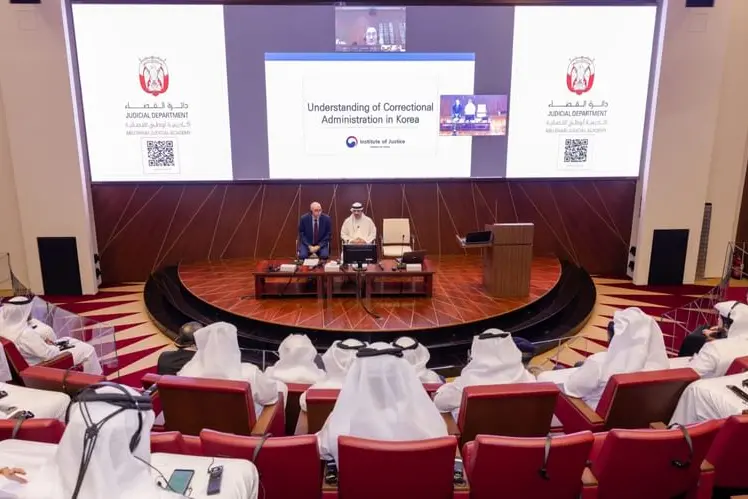PHOTO
ABU DHABI - The Abu Dhabi Judicial Department (ADJD), represented by the Abu Dhabi Judicial Academy (ADJA), organised a workshop in collaboration with the Institute of Justice of the Republic of Korea.
The workshop focused on the latest systems implemented in managing rehabilitation and correctional centres, aiming to exchange knowledge, expertise, and learn from international best practices in the field. The goal is to enhance Abu Dhabi's competitive position on the global stage.
The workshop is part of a series organised by the ADJD in coordination with regional and international judicial authorities. This aligns with the directives of His Highness Sheikh Mansour bin Zayed Al Nahyan, Vice President, Deputy Prime Minister, Chairman of the Presidential Court, and Chairman of ADJD, to strengthen partnerships and adopt international experiences.
In his opening speech, Counsellor Hasan Alhammadi, Director of the Prosecution Affairs Division in Abu Dhabi, emphasised the UAE's commitment to rehabilitating inmates and reintegrating them into society. He highlighted the country's extensive legislation governing rehabilitation and correctional centres, as well as its participation in international human rights conventions and initiatives.
Alhammadi mentioned the recent issuance of Law No. 4 of 2024, which regulates rehabilitation and correctional centres in Abu Dhabi. This law, following the transfer of management responsibilities to the Judicial Department, represents a significant step forward in developing effective correctional and rehabilitation systems.
Lee Ki-hyun, Director of the Correctional Training Department at the Institute of Justice of the Republic of Korea, delivered a videoconference speech emphasising the importance of collaboration between the ADJD and Korean judicial institutions. He highlighted the potential for exchanging insights and ideas on advanced systems and training programmes.
Ahn Hyo Jeong, a professor at the Institute of Justice, discussed the Korean correctional administration's use of modern technologies, vocational training programmes, and psychotherapy. These initiatives aim to prepare inmates for reintegration into society and prevent recidivism, particularly among juvenile offenders.
Lee Seok Jin, another professor at the Institute of Justice, addressed the training and qualification process for correctional officers in Korea. He explained the focus on modern educational programmes, practical application, and field training to ensure officers are equipped to perform their duties efficiently and professionally while promoting legal awareness and protecting human rights.





















